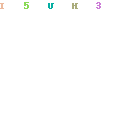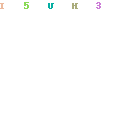Track the pollution level in your city
TOI, on Wednesday, had reported a study that suggested that long-term exposure to air pollution could be linked to as much as 15% Covid deaths globally. Doctors have cautioned that those with pre-existing lung diseases, asthma and heart ailments were particularly vulnerable to breathing distress as pollution levels rise during Kolkata’s winter. Some have even warned that higher pollution could lead to a rise in Covid deaths.
The pandemic-induced restrictions had caused pollution to drop sharply to the lowest since pollution levels began to be recorded. Though the AQI had been going down gradually since Unlock began in June, it began to shoot up since Tuesday evening, with hourly AQI at some stations shooting past 300. At most places, however, it was around 200.
With Kali Puja and Diwali round the corner — when the AQI plunges because of firecrackers — doctors are now extremely worried. “There is no debate as to whether the degrading air quality would make the Covid-19 battle more difficult,” felt Suman Mallick, head, radiation oncology, Narayana Superspeciality Hospital.
“The post-festival case spike and worsening air quality would be a nightmarish combination,” he added. An AQI range of 101-200 signifies ‘moderate’ air quality, which can cause breathing distress to people with lung disease, asthma and heart disease. Once it breaches the 200-mark, the air quality becomes poor. Long exposure to such air can cause breathing distress to even healthy people.
“Rise in pollution is directly linked to a spurt in Covid transmission,” said Raja Dhar, a pulmonologist at Fortis Hospital. “So, it’s a matter of concern that the AQI is climbing. The virus can easily stick on to particulate matter and infiltrate the lungs. So, the higher the pollution level, the greater would be the possibility of transmission. Over the last seven months, we have seen that people living in congested and polluted areas have tested positive more frequently.”
Pulmonologist Arup Haldar, who is associated with several hospitals in the city, said: “The presence of oxidants in the lungs aggravates the severity of infections. The oxidative stress actually accelerates the seriousness of the patient.”
The higher pollution load leaves the lungs ailing, making them vulnerable to infections, said Arun Sharma, the director of community medicine at the University College Of Medical Sciences, Delhi, who has studied pollution patterns and effects in Kolkata.
A study carried out in May by Harvard T H Chan School of Public Health suggested that even one microgram increase of PM2.5 (the main type of air pollutant in Kolkata) could increase mortality by 8%. A recent study, however, estimated that exposure to air pollution could increase Covid-19 deaths by as much as 15%. The study estimated that about 15% of deaths worldwide from Covid-19 could be attributed to long-term exposure to air pollution.
Significantly, it is the heart which suffers most and not the lung because of prolonged exposure to fine particulate matter like PM2.5. Ambient air pollution caused 4.2 million deaths due to stroke, heart disease, lung cancer and respiratory diseases, said Dr K Aggarwal, IMA-CMAAO, during a webinar on Covid and air pollution.
Ajay Mittal of the organisation Calcutta Clean Air, which works on pollution-related issues, said: “This is an unusual year, which warrants radical steps to contain air pollution. Since Covid-19 is a respiratory disease, we must have stricter protocols and awareness for Kali Puja and Diwali. It should not be confined to noise, but against air pollution caused by low-decibel fireworks, before the fireworks start invading the markets.”
Pradeep Kakkar, founder-member of city-based People United for Better Living in Calcutta (PUBLIC), said: “The AQI plunged to 10 during the lockdown. How could we again let it shoot beyond 200?”
Source: https://timesofindia.indiatimes.com/city/kolkata/kolkata-air-enters-poor-zone-again-docs-sound-covid-alarm/articleshow/78921856.cms


